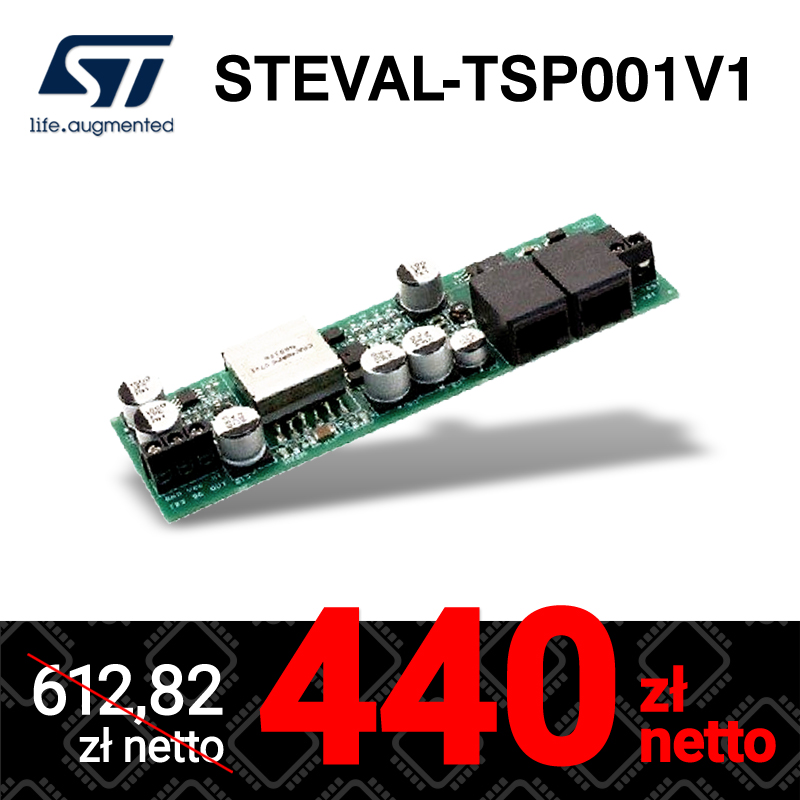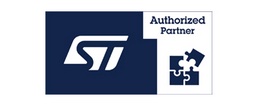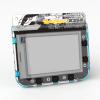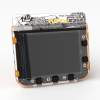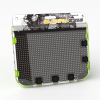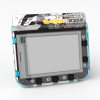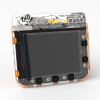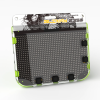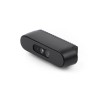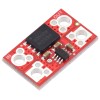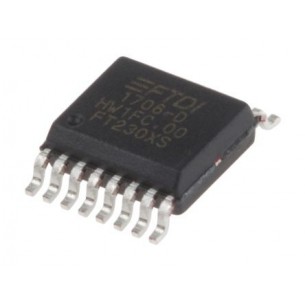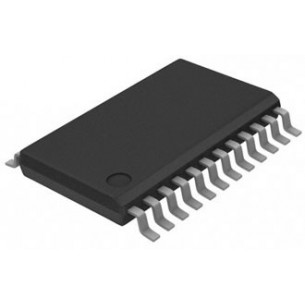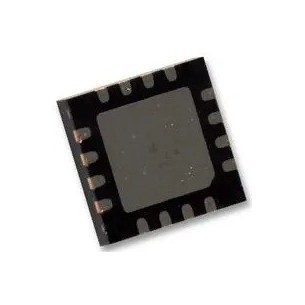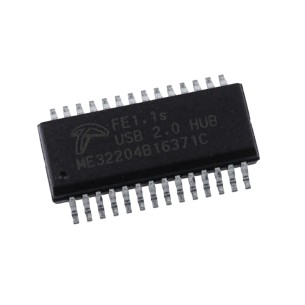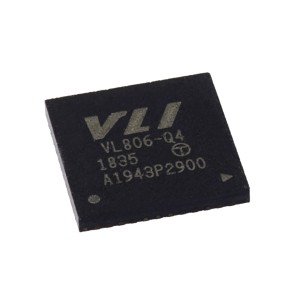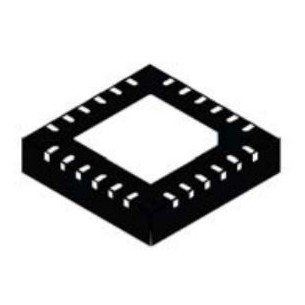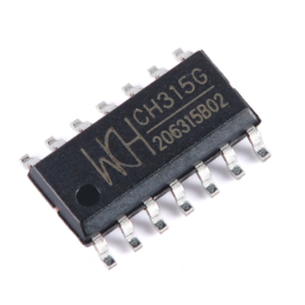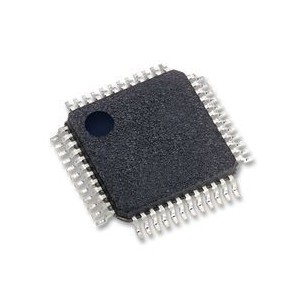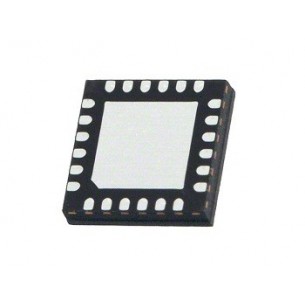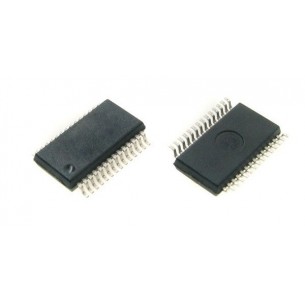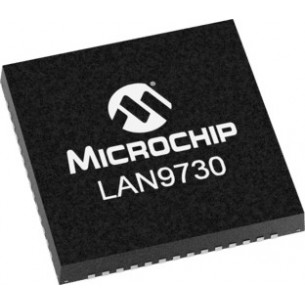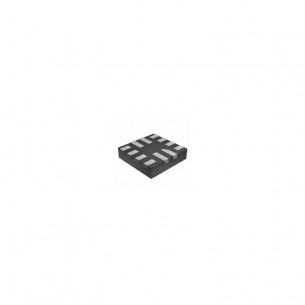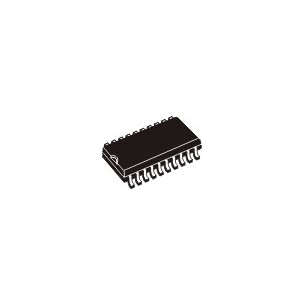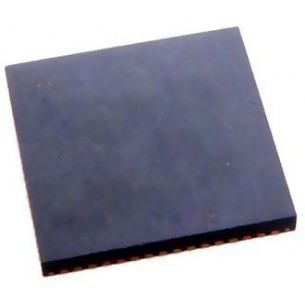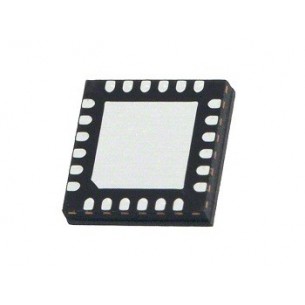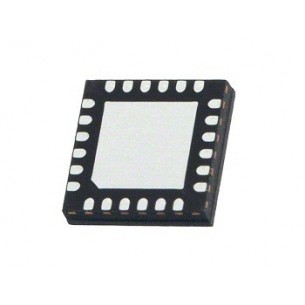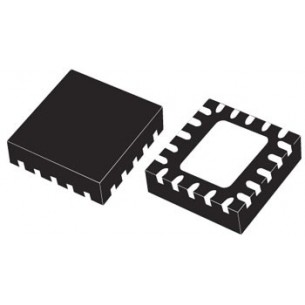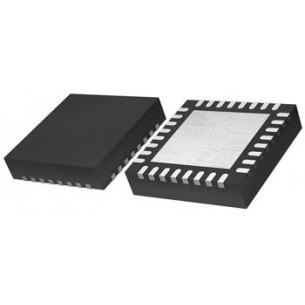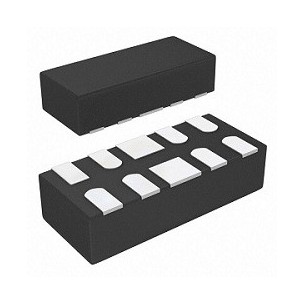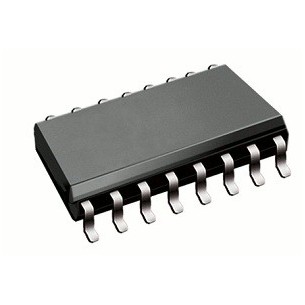Products
Categories
- Main categories
-
- 3D PRINTING
- ARDUINO
- AUTOMATION
- BOOKS
- CYBERSECURITY
- EDUCATION
- ELECTRONICS
- Cables
- Cameras and accessories
- Communication
- Conductive materials
- Connectors
- ARK connectors (Terminal Block)
- Banana connectors
- Coaxial connectors (RF)
- Connectors
- Crocodile clip
- D-Sub drawer connectors
- DC power connectors
- FFC/FPC ZIF connectors
- Goldpin connectors
- IDC connectors
- JACK connectors
- JST connectors
- Jumpers
- Memory cards slots
- Other connectors
- Pogo pin
- Quick couplers
- RJ45 connectors
- Slip ring connector
- Supports
- USB connectors
- USB PD Adapters for Laptops
- WF connectors
- Cooling
- Displays
- Electronic modules
- A/D and D/A converters
- Audio
- Barcode readers
- CAN converters
- Converters USB - UART / RS232
- Cryptographic module
- Data logger
- DDS/PLL generators
- Digital potentiometers
- Encoders
- Expanders of the I/O
- Fingerprint readers
- Galvanic isolation modules
- HMI modules
- Image and video
- JTAG accessories
- Keyboards, buttons
- LED drivers
- Memory card readers
- Memory modules
- Modules with power outputs
- Motor controllers
- Power modules
- Protection modules
- RS485 converters
- RTC modules
- Servo Controllers
- TSOP infrared receivers
- USB Converters - I2C / 1-Wire / SPI
- Voltage converters
- Gadgets
- GPS
- Intelligent clothes
- LED - diodes, displays, stripes
- Luminous wires and accessories
- Machine vission (MV)
- Memory cards and other data storages
- Passive elements
- PC accessories
- Printers
- Programatory czasowe
- Prototype boards
- Relays
- Semiconductors
- A/C converters (ADC)
- Analog systems
- Audio systems
- Bridge rectifiers
- Button
- D/A Converters (DAC)
- DDS synthesizers
- Digital circuits
- Diodes
- Drivers of motors
- DSP microprocessors
- Energy counters
- Energy harvesting
- ESD security
- IGBT drivers and bridges
- Interface systems
- LED drivers
- Logic converters
- Memory
- Microcontrollers
- Optotriacs and optocouplers
- Other
- PLL generators
- Power systems
- Programmable systems
- Resetting systems
- RF systems
- RTC systems
- Sensors
- SoC systems
- Timery
- Touch sensors
- Transistors
- Sensors
- Accelerometers
- Air humidity sensors
- Air quality sensors
- Current sensors
- Distance sensors
- Flow sensors
- Gas sensors
- Gyroscopes
- Hall sensors
- Humidity sensors
- Infrared sensors
- Laser scanner
- Light and color sensors
- Liquid level sensors
- Magnetic sensors (compasses)
- Medical sensors
- Motion sensors
- PH sensors
- Position sensors
- Pressure sensors
- Pressure sensors
- Reflection sensors
- Sensors 6DOF/9DOF/10DOF
- Sensors of liquid quality
- Temperature sensors
- Vibration sensors
- Sound transducers
- Switches and buttons
- Cables
- FPGA DEVELOPMENT KITS
- MEASURING DEVICES
- Anemometers
- Cable testers
- Distance measurement
- Electronic loads
- Generators
- Insulation resistance meters
- LCR meters
- Logic analyzers
- Measures and calipers
- Multimeters
- Network analyzers
- Oscilloscopes
- Other meters
- Panel meters
- Radiation detectors
- Sound meters
- Temperature measurement
- Testery USB
- Voltage indicator
- Wattmeters
- Weights
- MECHANICS
- MINICOMPUTERS (SBC)
- POWER
- RASPBERRY PI
- Accessories for Raspberry Pi
- Audio video cables for Raspberry Pi
- Case Raspberry Pi
- Cooling for Raspberry Pi
- Displays for Raspberry Pi
- Extension modules for Raspberry Pi
- Memory cards for Raspberry Pi
- Power for Raspberry Pi
- Raspberry Pi 3 model A+
- Raspberry Pi 3 model B
- Raspberry Pi 3 model B+
- Raspberry Pi 4 model B
- Raspberry Pi 400
- Raspberry Pi 5
- Raspberry Pi 500
- Raspberry Pi cameras
- Raspberry Pi Compute Module
- Raspberry Pi model A/ B+/2
- Raspberry Pi Pico
- Raspberry Pi prototyping
- Raspberry Pi Zero
- Raspberry Pi Zero 2 W
- RETIRED PRODUCTS
- SALE
- STARTER KITS, PROGRAMMERS, MODULES
- Atmel SAM
- Atmel Xplain
- AVR
- Coral
- DFRobot FireBeetle
- ESP32
- ESP8266
- Feather / Thing Plus
- Freedom (Kinetis)
- M5Stack
- Micro:bit
- Nordic nRF
- Other development kits
- Particle Photon
- Peripheral modules
- PIC
- Raspberry Pi RP2040
- RFID
- RISC-V
- Seeed Studio LinkIt
- Segger programmers
- SOFTWARE
- Sparkfun MicroMod
- STM32
- STM32 Discovery
- STM32 MP1
- STM32 Nucleo boards
- STM8
- Teensy
- Universal programmers
- WRTNode
- XIAO/Qt PY
- Atmel SAM
- WORKSHOP
- Adhesives for hot glue guns
- Chemistry
- Agents for securing electronics
- Cleaning and preserving agents
- Compressed air
- Conductive paints and varnishes
- Distilled water
- Etcher
- Freezing
- Gas for lighters and burners
- Isopropyl alcohol (IPA)
- Label removers
- Lubricants, oils
- Pastes and adhesives thermally conductive
- PCB cleaning products
- Thermopads - thermally conductive tapes
- CNC milling machines
- Crimping tools
- Dispensing needles
- Gluers
- Glues
- Heat-shrink tubing
- Insulation strippers
- Knives
- Laboratory power supplies
- Microscopes
- Mini drills and grindrers
- Organizers
- Personal protection (OHS)
- Power tools
- Sandpapers
- Scissors
- Soldering
- Antistatic mats and accessories (ESD)
- BGA balls
- BGA rework stations
- Brushes and ESD brushes
- Desoldering Wick
- Handles, magnifiers
- Heat guns
- Heaters and soldering irons
- Laminates
- Portable soldering irons
- Silicone Soldering Mats
- SMD Accessories
- Soldering accessories
- Soldering chemistry
- Soldering irons
- Soldering pastes
- Soldering pots
- Soldering stations
- Soldering tips
- Sponges and cleaners
- Stand for soldering irons
- Tin
- Tin extractors
- Ultrasonic cleaners
- Tapes (aluminum, kapton, copper, insulating)
- Tools
- Tweezers
- Vices
- Workshop lighting
- 3D PRINTING
New products
New products New products
Category: USB
USB Interface Circuits: Technology, Standards, and Applications
In today's rapidly evolving technological world, USB interface circuits play a crucial role in communication between electronic devices. Thanks to advanced technological solutions, high-quality standards, and wide applications, USB interfaces have become an integral part of modern electronic systems. Regardless of the industry, from manufacturing to consumer electronics, USB circuits provide reliable, fast, and efficient connections that are essential in the era of the Internet of Things (IoT) and other advanced applications. It is predicted that this technology will continue to evolve, offering even greater capabilities and versatility.
There are 37 products.
FT230XS-R, USB-UART (RS232/RS422/RS485) converter, SSOP-16
PTN5110NHQZ, USB PD TCPC PHY controller, HX2QFN16
FE1.1s is a compact and energy-efficient USB 2.0 hub controller, designed for integration into devices requiring support for multiple USB ports while maintaining high stability and low implementation costs.
VL806 is a compact USB 3.0 controller for integration into systems with a PCIe interface, providing fast data transfer, high device compatibility, and low power consumption. It is suitable for desktop computers, embedded systems, and expansion cards requiring stable and efficient communication with USB devices.
USB Type-C ™ controller with TX / RX line driver and BMC. QFN-24, STMicroelectronics
The CH315G USB expansion controller chip adds USB functionality to embedded systems by supporting a full-speed USB 2.0 interface up to 12 Mbps. Powered by either 3.3 V or 5 V, it is RoHS compliant, making it a versatile and safe solution for a variety of electronics projects.
The CH9350 enables the integration of USB HID devices with UART- and RS485-based systems, simplifying the design of KVM extensions and remote control systems. Support for multiple operating modes, absolute mouse, and VID/PID configuration allows for customization to advanced industrial and multimedia applications. The device is ideal for projects requiring stable USB-to-UART conversion and flexible communication configuration
Advanced version Hub solutions which fully comply with USB Specification Revision 2.0, SSOP28, Genesys Logics, RoHS
HSIC USB 2.0 interface controller to 10/100 Ethernet. Microchip LAN9730I-ABZJ
Single-channel SuperSpeed USB 3.0 driver from NXP in the X2QFN12 housing. The 1.8V system supports data rates up to 5 Gbit / s. NXP PTN36221AHXHP
Full/Low Speed 2.5 kV USB Digital Isolator,16-Lead SOIC, Analog Devices, RoHS.
Technological Advancement of USB Circuits
USB interface circuits are the result of years of research and innovation, leading to the creation of reliable and versatile solutions. Currently, the USB 3.2 Gen 2x2 standard allows data transfer speeds of up to 20 Gbps, enabling rapid transfers of large files and quick synchronization of devices. Advanced USB controllers also offer power management functions, translating into more efficient power management of peripheral devices. Thus, USB technology not only meets the high demands of contemporary applications but also contributes to increased energy efficiency.
Standards and Compatibility
One of the key advantages of USB technology is its compliance with international standards, ensuring compatibility between various devices and platforms. Thanks to standards such as USB 2.0, USB 3.0, USB 3.1, and the latest USB 4.0, users can easily connect and use a wide range of devices without the need for additional adapters. Moreover, these standards also cover security issues, which is particularly important in the context of data protection and system security.
Wide Application in Various Industries
USB interface circuits are used in many industries, from industrial control systems and medicine to consumer electronics. In industry, USB interfaces are used for communication between various control and monitoring devices, allowing precise control of production processes. In medicine, fast and reliable data transmission is crucial for the operation of modern diagnostic and therapeutic devices. In consumer electronics, USB circuits are indispensable for connecting devices such as smartphones, tablets, and computers.
Prospects for the Development of USB Technology
The future of USB technology looks very promising. It is expected that upcoming standards, such as USB 4.0, will bring even higher data transfer speeds, reaching up to 40 Gbps, and greater energy efficiency. These innovations will be crucial in the context of developing new technologies such as augmented reality (AR) and virtual reality (VR), which require very fast and stable connections. Furthermore, the development of USB-C technology, which is becoming the new standard in many devices, contributes to even greater versatility and ease of use. USB interface circuits are not only standards of communication between devices but also symbols of technological advancement and innovation. Thanks to their reliability, wide application, and compliance with international standards, they are a key element of modern electronic systems. The projected development of this technology suggests that USB circuits will play an increasingly significant role in the future, supporting new, advanced applications and technologies that are changing our daily lives.

